By Toure Muhammad
- October 18, 2022
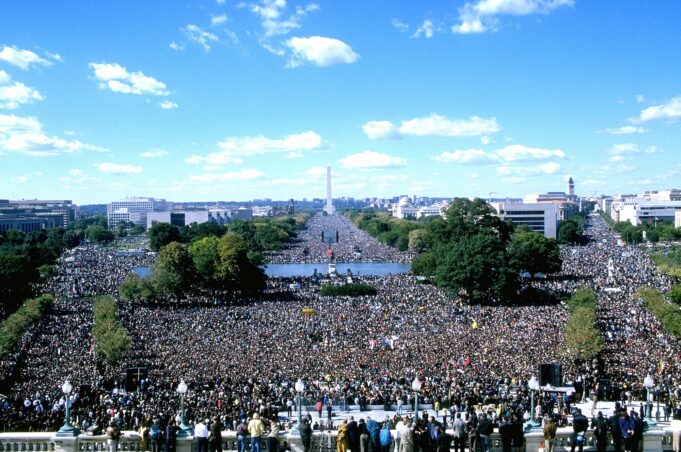
The Million Man March was held on October 16, 1995 in Washington, D.C. and attracted nearly two million Black men at the call of the Honorable Minister Louis Farrakhan. Photo: Larry Downing/Sygma/Sygma via Getty Images
CHICAGO—Mosque Maryam, the flagship mosque of the Nation of Islam attracted viewers via webcast and in person to commemorate the day 27 years ago when nearly two million Black men came to Washington, D.C. at the call of the Honorable Minister Louis Farrakhan.
The Million Man March and Holy Day of Atonement held October 16, 1995, was an event that among other things, helped many Black people—Black youth in particular—avoid the war that was being waged on them by powerful forces within the U.S. government. An array of panelists and presenters also reminded attendees and viewers how important it is to keep the spirit, principles of atonement, unity, and the work of uplifting Black people established by the March, alive today.
CHICAGO—Mosque Maryam, the flagship mosque of the Nation of Islam attracted viewers via webcast and in person to commemorate the day 27 years ago when nearly two million Black men came to Washington, D.C. at the call of the Honorable Minister Louis Farrakhan.
The Million Man March and Holy Day of Atonement held October 16, 1995, was an event that among other things, helped many Black people—Black youth in particular—avoid the war that was being waged on them by powerful forces within the U.S. government. An array of panelists and presenters also reminded attendees and viewers how important it is to keep the spirit, principles of atonement, unity, and the work of uplifting Black people established by the March, alive today.
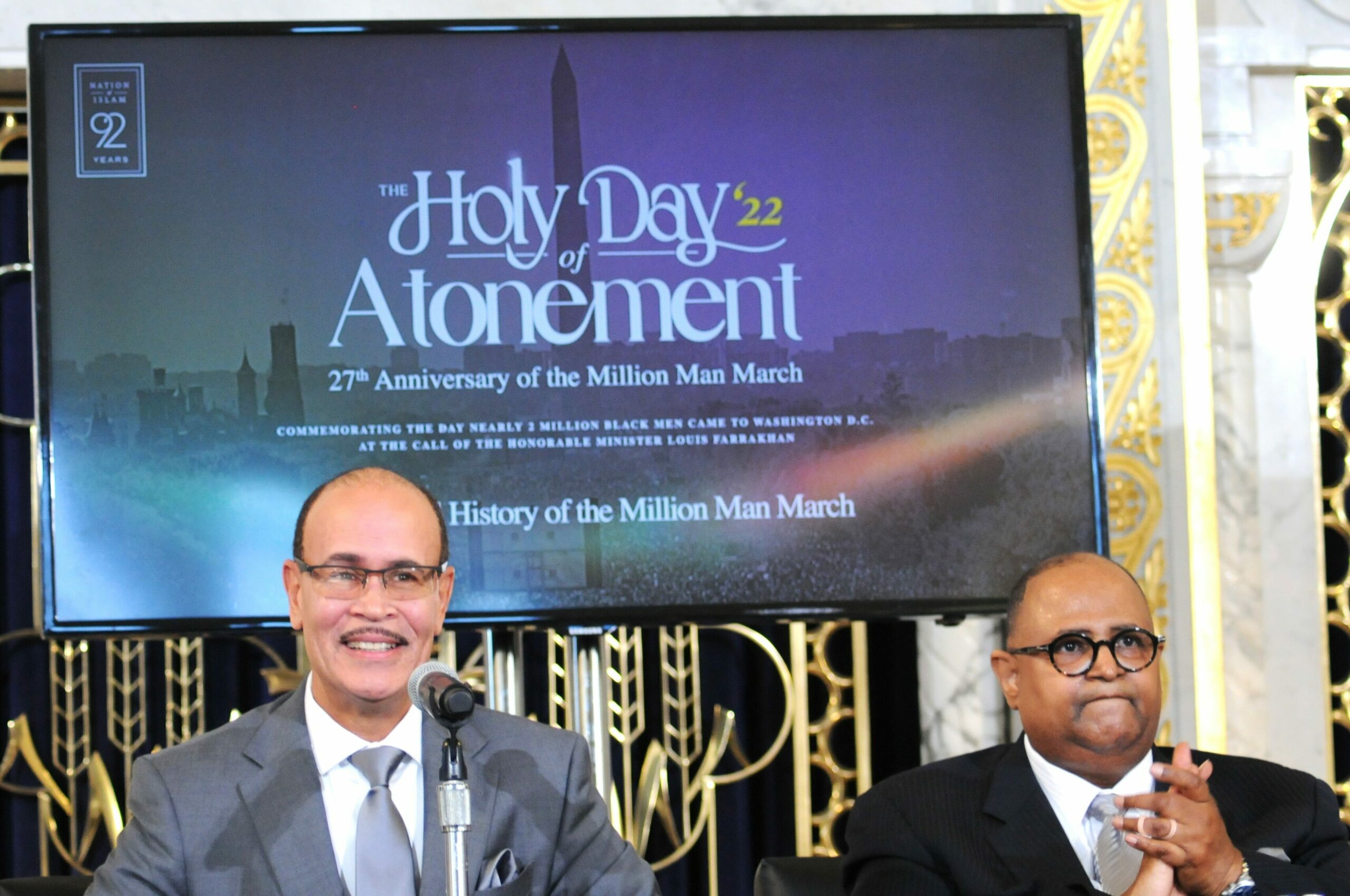
The commemorative program held October 15, was presented by members of the Nation of Islam Executive Council. Student Minister Ishmael Muhammad, National Assistant to Minister Farrakhan; Student Minister Abdul Arif Muhammad, Nation of Islam General Counsel; Sister A’ishah Muhammad, National Auditing Coordinator; Brother Leonard F. Muhammad, a longtime aide to Minister Farrakhan and Brother Sultan Rahman Muhammad, Student National Imam of the Nation of Islam were among presenters.
Rev. Al Sampson of Fernwood United Methodist Church in Chicago was also a panelist. The program also included several guest speakers and key organizers of the March offering reflections, observations, and the true origin and history of the historic gathering.
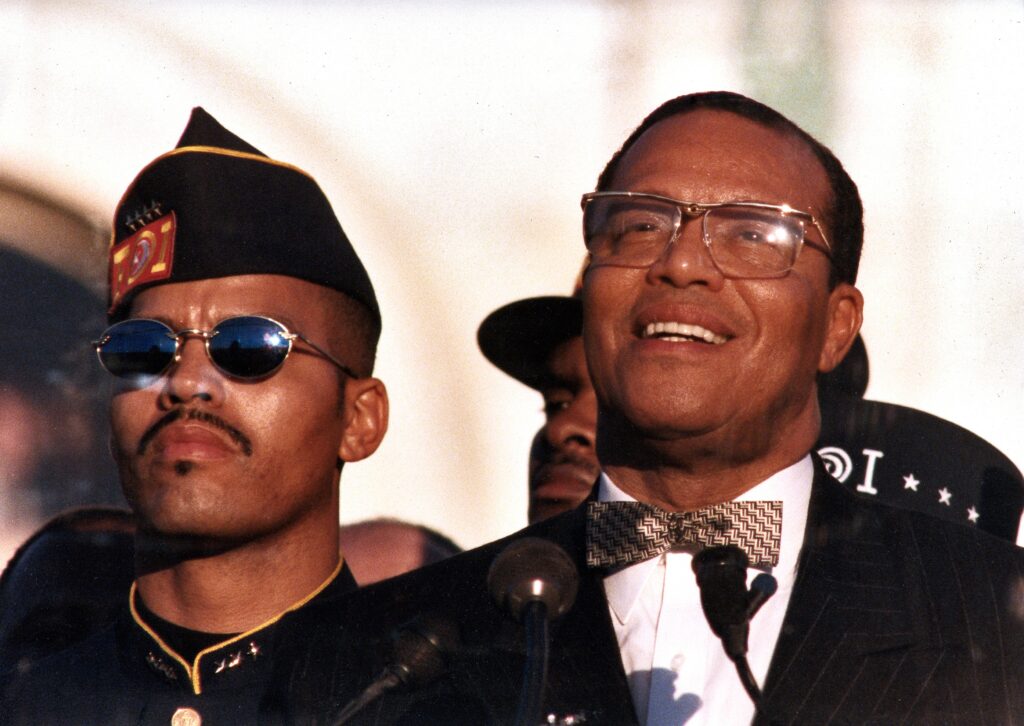
“Never in the history of the world has one man called forth a million men to present themselves, not to bear arms, but to atone for our shortcomings, our misgivings, our failures as men,” said Min. Ishmael Muhammad, one of several key organizers of the Million Man March, who opened the panel discussion.
“We went there answering the call of God … Because God was put first. God was in front of it. God was in it. He was behind it. And we were in harmony with his will and the result of the harmony and the obedience to His will produced peace,” he added.
Warning the people and saving lives
The call and theme for that day on Monday, October 16, 1995, was one of atonement, reconciliation and responsibility and for Black men to accept their roles as leaders and protectors of their families and communities. This type of commemoration is important because the history and impact of the Million Man March needs to be shared with today’s youth.
Min. Abdul Arif Muhammad, an expert researcher and historian who served as the Student Mid-Atlantic Regional Minister of the Nation of Islam at the time of the Million Man March, shared history about the origin of the massive gathering.
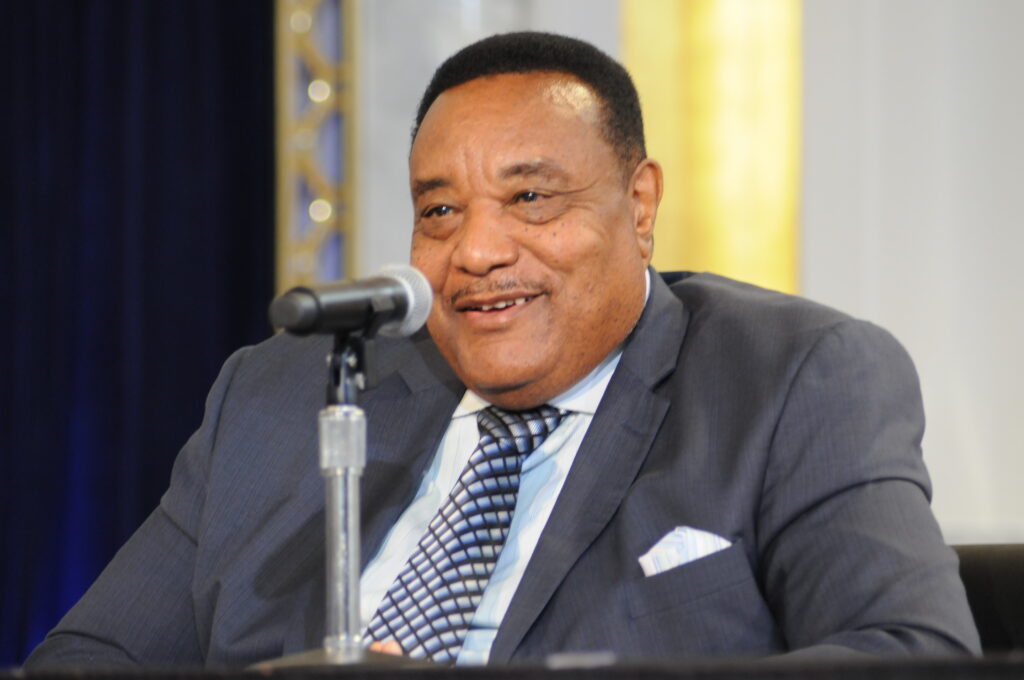
It started with the Most Honorable Elijah Muhammad, explained Min. Arif Muhammad. In 1963 the Eternal Leader of the Nation of Islam and his top student, Minister Farrakhan sat together watching the 1963 March on Washington. The Hon. Elijah Muhammad told the Minister that day: “One day, I’m gonna lead a march brother and we won’t leave Washington until we get what we go for–and that is justice.”
Min. Arif Muhammad also highlighted the impact of the Tiananmen Square Massacre. In July 1989, Chinese tanks rolled over student demonstrators who had presented their bodies in an attempt to block the military’s advance into Tiananmen Square.
“What I saw in it. The government has no response to what was going on and my thought was when they attack us to try to commit genocide against, us the world will not react because of what they saw in Tiananmen Square,” said Min Arif Muhammad, recounting the Minister’s words.
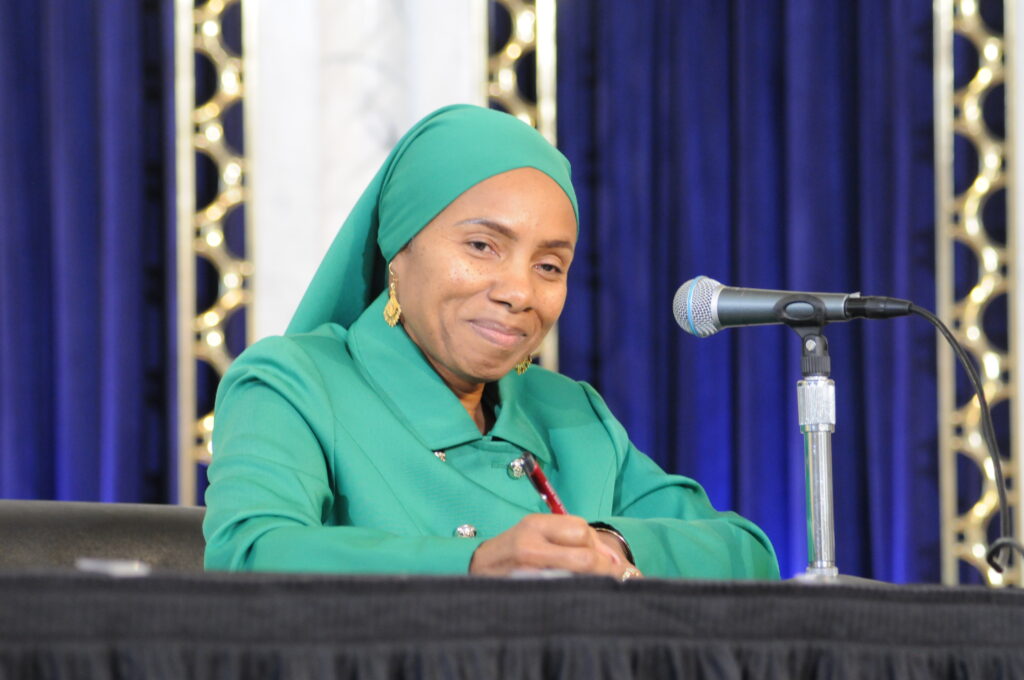
Then, on October 23, 1989, for the first time in October, the Minister hosted Saviours’ Day in Washington, D.C. The lecture was titled, “Stop the Killing.” The following day he held a press conference where he exposed the plans of the U.S. government after receiving instructions and communication from his teacher, the Most Honorable Elijah Muhammad.
“I am here to announce today that President Bush has met with his Joint Chiefs of Staff, under the direction of General Colin Powell, to plan a war against the Black people of America, the Nation of Islam and Louis Farrakhan, with particular emphasis on our Black youth, under the guise of a war against drug sellers, drug users, gangs and violence-all under the heading of extremely urgent national security,” said Min. Farrakhan during the October 24 press conference.
“The FBI, in preparation for this war, has stepped up its campaign against strong Black political leadership. The FBI is using dirty tactics under the guise of flushing out corrupt politicians to malign and besmirch the good name of many of our strong fighters for justice; threatening them with indictments or casting them into prisons. With other weaker leaders, the government has already promised them wealth and nearness to the centers of power and to be in their councils in exchange for their being silent when the attack finally comes,” he added.
The attack on Black youth came from all fronts, including the media.
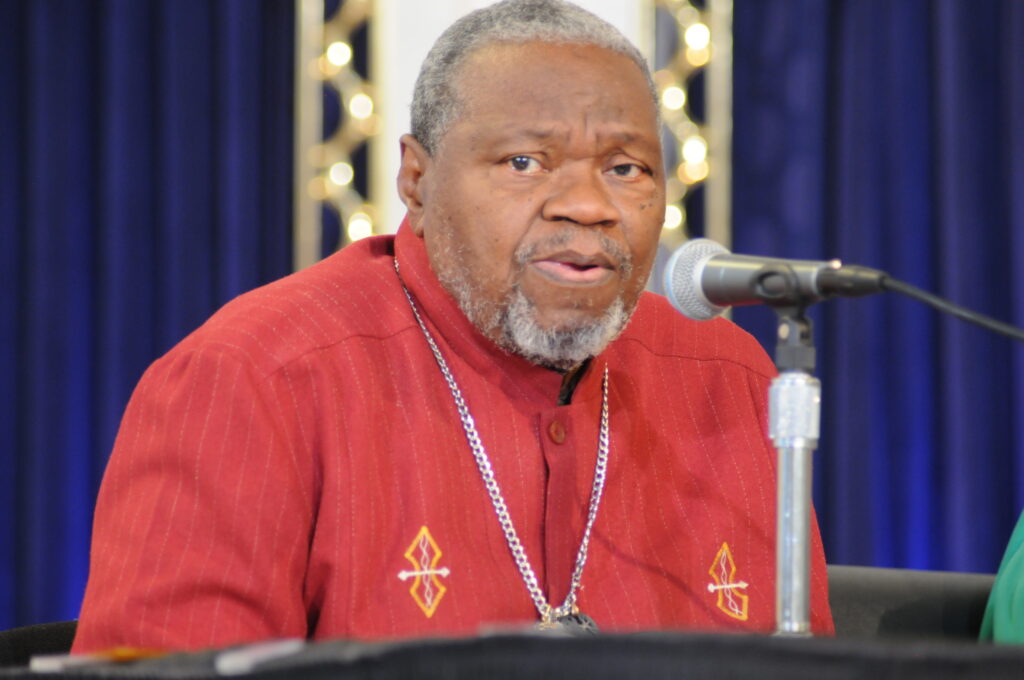
“You saw a culture shift among our people, particularly the youth. You saw crack cocaine. You saw the lyrics in the music change from the conscious hip hop that started in the 80s and it started shifting towards gangsta rap,” explained Minister Ishmael Muhammad referencing the late 80s and early 90s. “And you saw drugs, you saw the display and portrayal of the Black male as thugs, murderers, criminals, drug users, drug pushers. And this ugly, negative image as being really directed from the media, so all of this is what is guiding and shaping the Minister in the calling of the Million Man March.”
In 1990, The Minister continued on a national “Stop the Killing” tour, where he warned Black people of what God had revealed to him concerning the war against Black people. Then, in January of 1994, roughly 12,000 attended and 3,000 were turned away for the first Men’s Only series entitled, “Let Us Make Man” at the 369th Armory in New York. It was at the meeting that Minister Farrakhan called for the Million Man March.
In the following years, images of Black people, especially Black youth were broadcast throughout the world via rap videos and violent movies including such films as Boyz N the Hood, 1991 and Menace II Society, 1993.
“I wanted to do something to show Black youth were not what Hollywood said we were. God blessed us to show Black America was not what we had been made out to be on the silver screen,” said Minister Farrakhan in The Final Call, 25 years after the Million Man March as he reflected on that day.
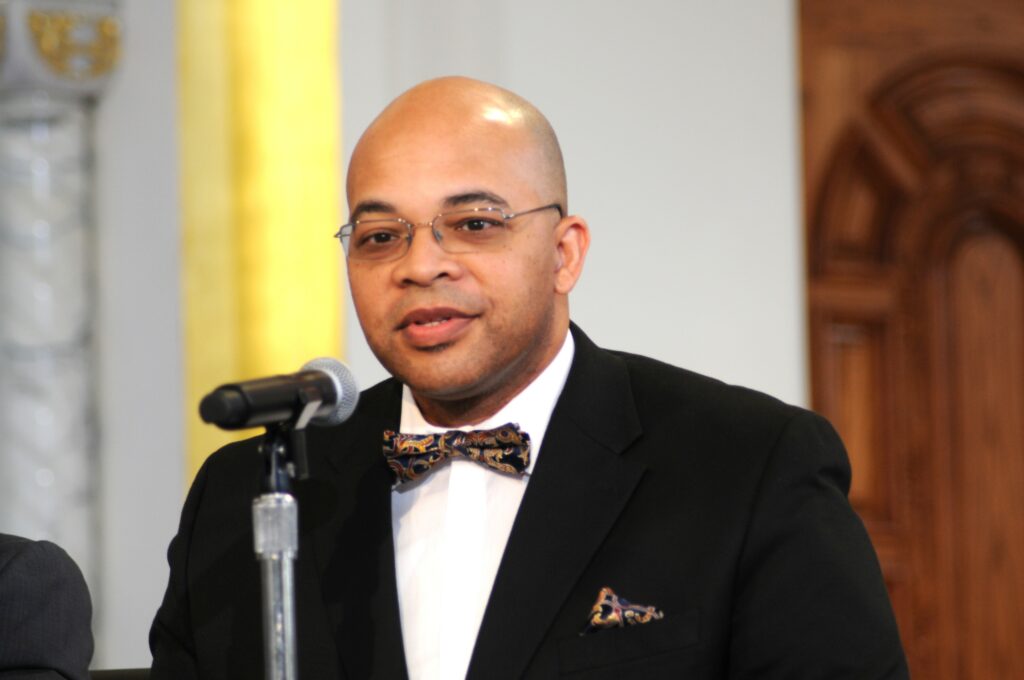
“So, on October 16, 1995, the capital of the greatest nation on earth and in the history of the last 6,000 years became the capital of Black America and Black people in the world. It was a day of tranquility, peace and contentment of mind never before seen in America. No crime was reported in the city of Washington that day. And if they checked, crime was down all over the country because Black men were not in the streets. They were at home in front of the television watching their brothers standing strong on the National Mall. That day frightened the enemies of our unity and the enemies of our rise. But it fulfilled the desire of Black men and women to see a day like we had never seen before.”
The world watched in amazement as nearly two million showed up on the Mall. Some tried to minimize the day by reporting low numbers. The National Park Service issued an estimate of about 400,000 attendees. The Nation of Islam disagreed and threatened to sue the Park Police to force a revision of the crowd estimate.
“They didn’t analyze photos taken at the zenith of the day which was about 1:00 p.m.,” said Minister Arif Muhammad.
Park Police had been providing such crowd estimates since the 1960s but have not provided crowd estimates at the mall since October 16, 1995.
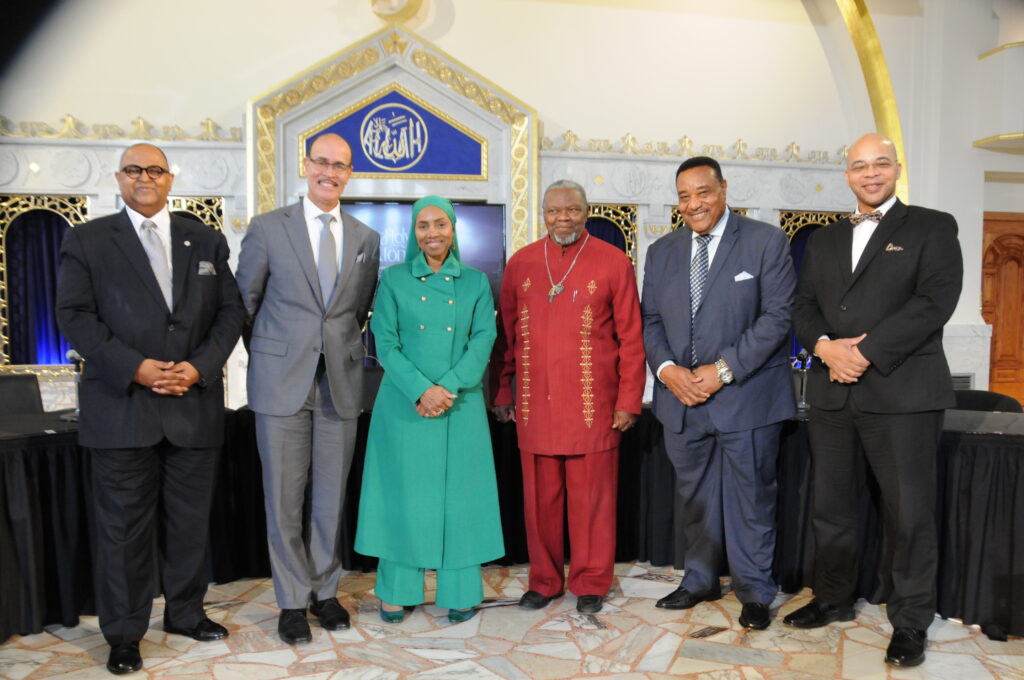
Overcoming obstacles and the key role of Black women
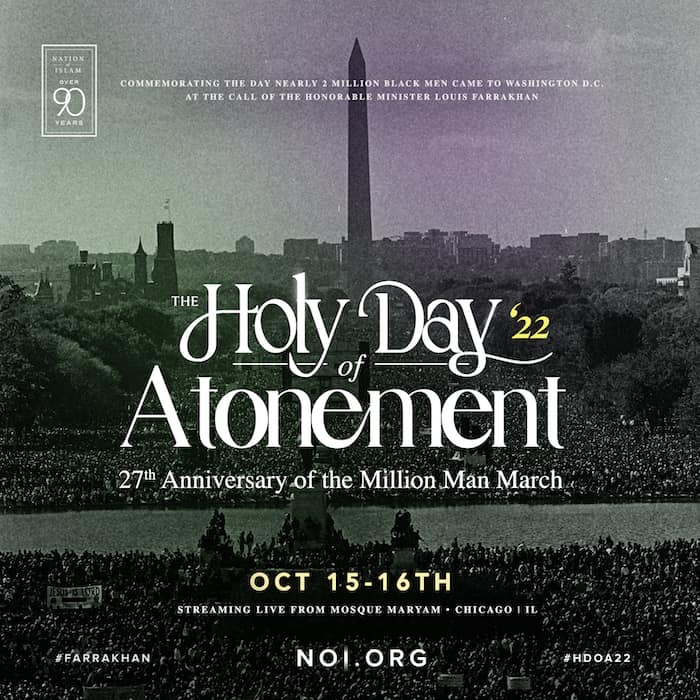
During the program, Cora Masters Barry was recognized. Ms. Barry spoke via webcast during the program at Mosque Maryam about the forces that came against her late husband, Mayor Marion Barry, because he did not hesitate to open the city and its services to the Minister for the Million Man March. “The backstory is the story that we must tell,” said Ms. Barry as she talked about the January 1995 meeting her husband had with the Minister right after he won his mayoral election.
“He came back (in office) just in time for the Million Man March … He (Min. Farrakhan) explained to my husband what he wanted to do and I remember Marion simply saying, ‘OK. Let’s do it. The city is yours.’ And he was true to his word. There were a lot of repercussions on my husband. When he made that commitment and made it public, he lost people out of his cabinet; they resigned. They wrote editorials about him. They did everything they could to stop him from supporting and opening up the city to the Million Man March, which of course made him more determined to do more.”
Ms. Barry explained how it was city and federal government officials and Black clergy who were the biggest opposers to the March, but “through all of that God took care of us,” she said.
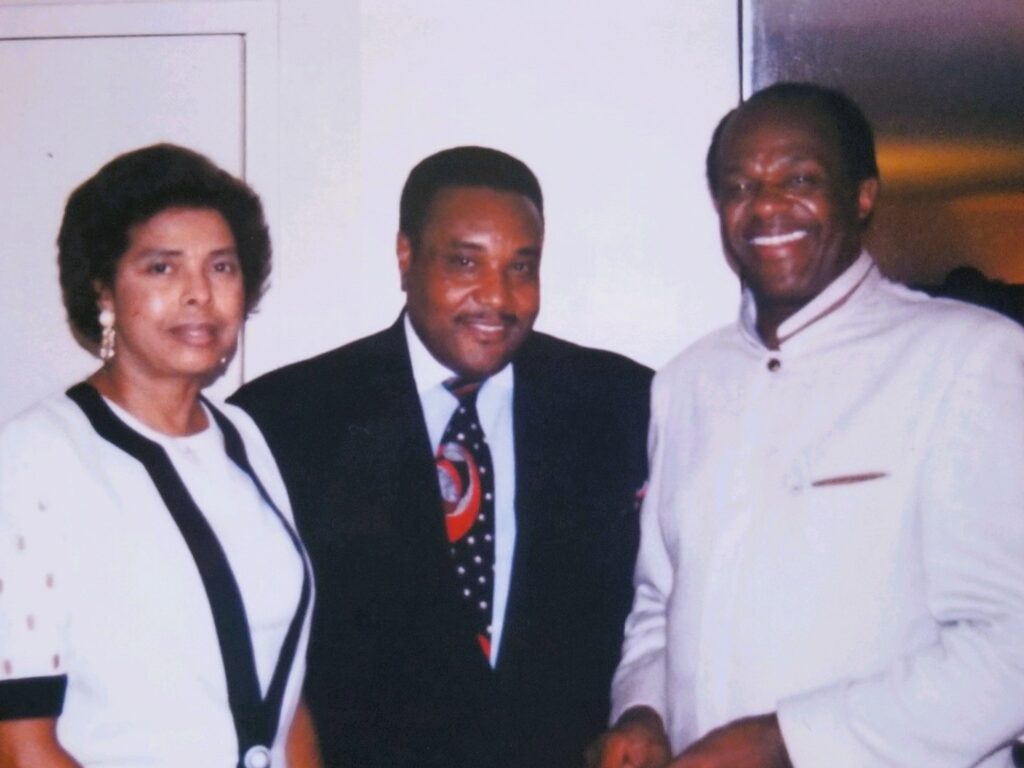
Dr. E. Faye Williams, Brother Leonard Farrakhan Muhammad, Mayor Photo Ruth M
October 16 brought to Washington the top Black politicians in the country, the top preachers in the country, top artists and sports figures.
“Everybody was there, and we permitted certain leaders including Rev. Jackson to speak as long as they wanted to,” said Bro. Leonard F. Muhammad, who currently serves on the Nation of Islam’s Executive Council, but at the time was Min. Farrakhan’s chief of staff. Rev. Jackson asked the Minister how much time he had to speak. The Minister responded, “Brother, I cannot give you a time limit. You go and speak until you are finished,” shared Brother Leonard F. Muhammad.
The key role of Black women
From organizing, promoting and speaking, the impact and support of Black women was critical. Though it was a gathering of men, never has an event taken place that honored women as women were honored on the day of the Million Man March.
A key organizer of the March was Sister Claudette Muhammad, who served as the National Protocol Director of the Nation of Islam during that time but also served as the Million Man March National Deputy Director.
October 16 brought to Washington the top Black politicians in the country, the top preachers in the country, top artists and sports figures.
“Everybody was there, and we permitted certain leaders including Rev. Jackson to speak as long as they wanted to,” said Bro. Leonard F. Muhammad, who currently serves on the Nation of Islam’s Executive Council, but at the time was Min. Farrakhan’s chief of staff. Rev. Jackson asked the Minister how much time he had to speak. The Minister responded, “Brother, I cannot give you a time limit. You go and speak until you are finished,” shared Brother Leonard F. Muhammad.
The key role of Black women
From organizing, promoting and speaking, the impact and support of Black women was critical. Though it was a gathering of men, never has an event taken place that honored women as women were honored on the day of the Million Man March.
A key organizer of the March was Sister Claudette Muhammad, who served as the National Protocol Director of the Nation of Islam during that time but also served as the Million Man March National Deputy Director.
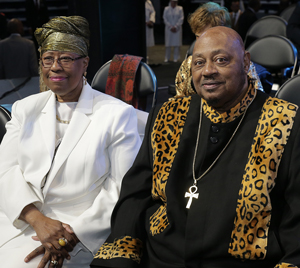
Fredrica Bey and Rev. Willie Wilson
Attorney and organizer Dr. E. Faye Williams and Fredrica Bey of Women In Support Of the Million Man March (WISOMMM) shared their reflections during the broadcast of the tremendous role of women, the hard work and dedication necessary to make the day a success and the pride Black women took in seeing their men that day. Both women were also major contributors to the Million Man March.
“Women were extremely instrumental in the success of the Million Man March. All praise is due to Allah (God). We helped, not just to get the word out, but to raise money and get men on the buses. We even threatened men that if they didn’t get on the bus, they could not come home,” said Sister A’ishah Muhammad during her panel remarks.
“Here in Chicago and all over the country women were instrumental in getting this thing going. In Chicago we had Sister Zakiyah Muhammad and Sister Doris Lewis and many other women who walked the streets, went to bus stops and train stops, we were everywhere. We would go door to door. We were not taking no for an answer,” Sister A’ishah Muhammad told the audience.
Attorney and organizer Dr. E. Faye Williams and Fredrica Bey of Women In Support Of the Million Man March (WISOMMM) shared their reflections during the broadcast of the tremendous role of women, the hard work and dedication necessary to make the day a success and the pride Black women took in seeing their men that day. Both women were also major contributors to the Million Man March.
“Women were extremely instrumental in the success of the Million Man March. All praise is due to Allah (God). We helped, not just to get the word out, but to raise money and get men on the buses. We even threatened men that if they didn’t get on the bus, they could not come home,” said Sister A’ishah Muhammad during her panel remarks.
“Here in Chicago and all over the country women were instrumental in getting this thing going. In Chicago we had Sister Zakiyah Muhammad and Sister Doris Lewis and many other women who walked the streets, went to bus stops and train stops, we were everywhere. We would go door to door. We were not taking no for an answer,” Sister A’ishah Muhammad told the audience.
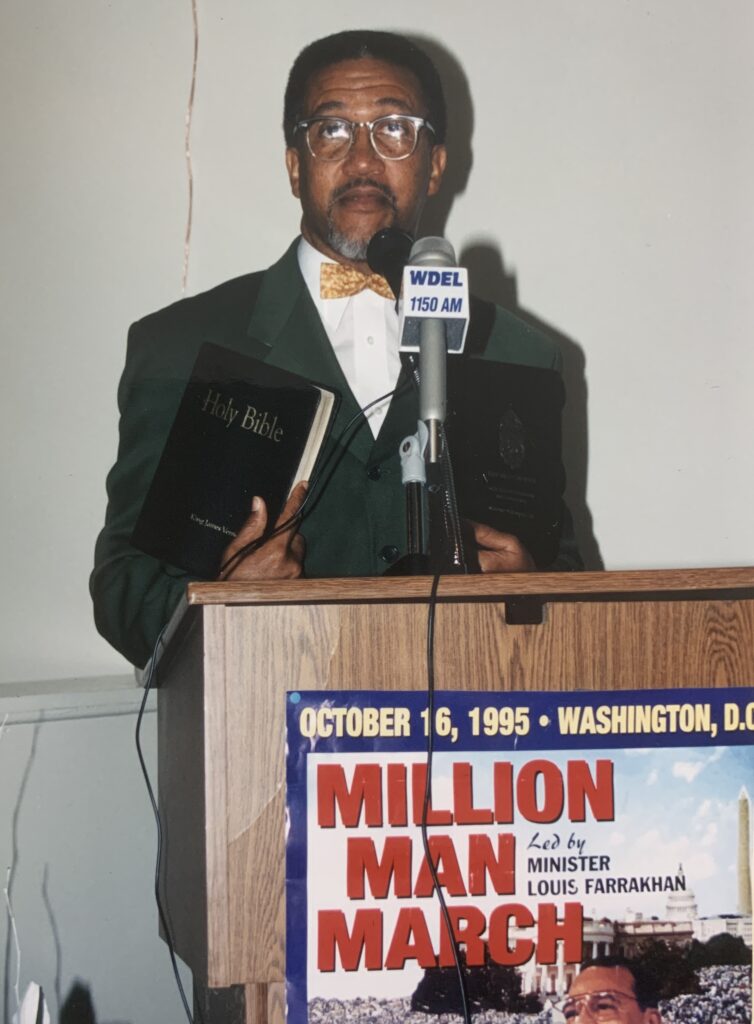
The women who spoke or were present at the March included Dr. Dorothy Height, a legendary leader in the civil rights struggle; Ms. Rosa Parks; Dr. Betty Shabazz and daughter Ilyasah Shabazz; humanist and poet Maya Angelou; Cora Masters Barry; Mother Khadijah Farrakhan of the Nation of Islam; Mother Tynnetta Muhammad, wife of the Hon.
Elijah Muhammad; Jacqueline Jackson, wife of Rev. Jesse Jackson; Rev. Barbara Skinner; C. Delores Tucker, Black nationalist matriarch Queen Mother Moore, and Dr. Delois Blakeley and 10-year-old Tiffany Mayo. Additionally, Sen. Carol Moseley Braun, Rep. Cardiss Collins, and Rep. Barbara Rose Collins were among Black women political leaders at the March.
Moving forward with the work
Rev. Dr. Benjamin Chavis also appeared via webcast to share his reflections. Rev. Chavis came aboard in the spring of 1995 to serve as the National Director for the Million Man March. “I went to Chicago and the Honorable Minister Louis Farrakhan asked me to be the National Director of the March and a lot of his colleagues thought it would further damage his career, but Rev. Chavis saw it as an opportunity. I saw it as a blessing from God because when I heard the Honorable Minister Louis Farrakhan called for a Million Man March. I heard God speaking through him calling for the March.”
Before organizing was done, there were 50 state Local Organizing Committees (LOC’s) and 480 local LOC’s all over the United States.
“The reason we worked so hard is because we had faith before the work. I believed in what the Honorable Minister Louis Farrakhan called for. I believed that a million men would show up,” said Rev. Chavis.
The panel ended with a call to keep the spirit alive.
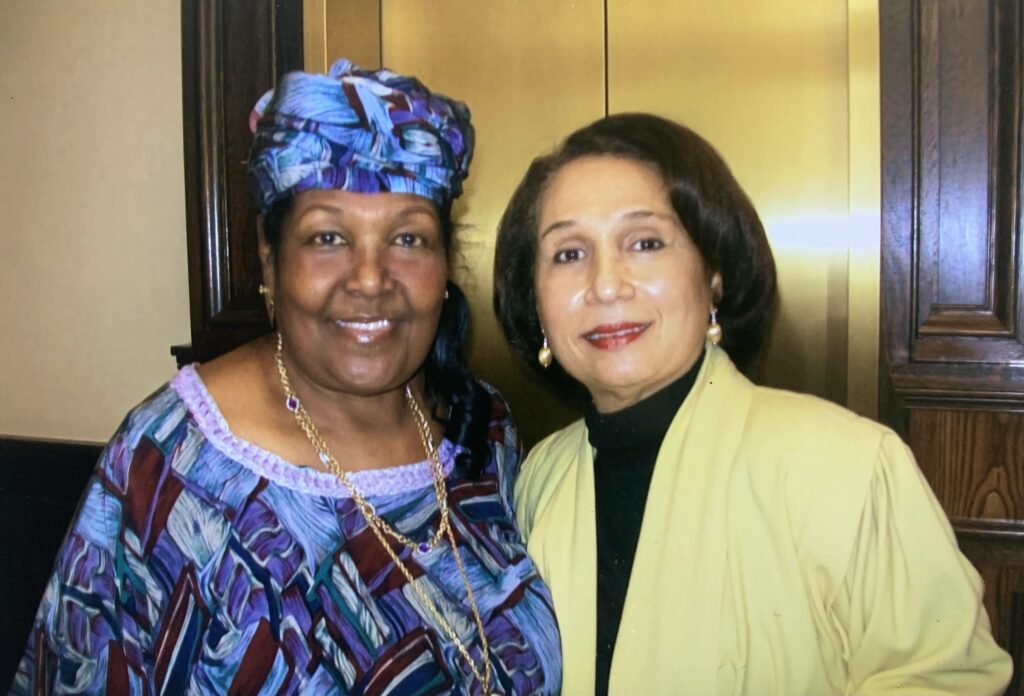
“The Black community is in worse shape now than it was then so if they needed us then, how much more do they need us now? So, we have to accept the challenge to get out. What man or woman having knowledge would hide it under a bushel basket? We kind of secure ourselves inside of our walls. The knowledge we have. We can’t be tired. Can’t stay tired, because there are too many problems that our people are suffering from,” said Bro. Leonard F. Muhammad.
“I pray, my prayer for today is this is a renewal and we rededicate ourselves and we set goals and objectives to get back out among the people. They miss us and they need us.”
Other presenters during the program included Student Southern Regional Minister Abdul Sharrieff Muhammad who in 1995 served as the Supreme Captain of the Nation of Islam and Rep. Danny Davis (D-Ill.). To view the program in its entirety, visit media.noi.org.
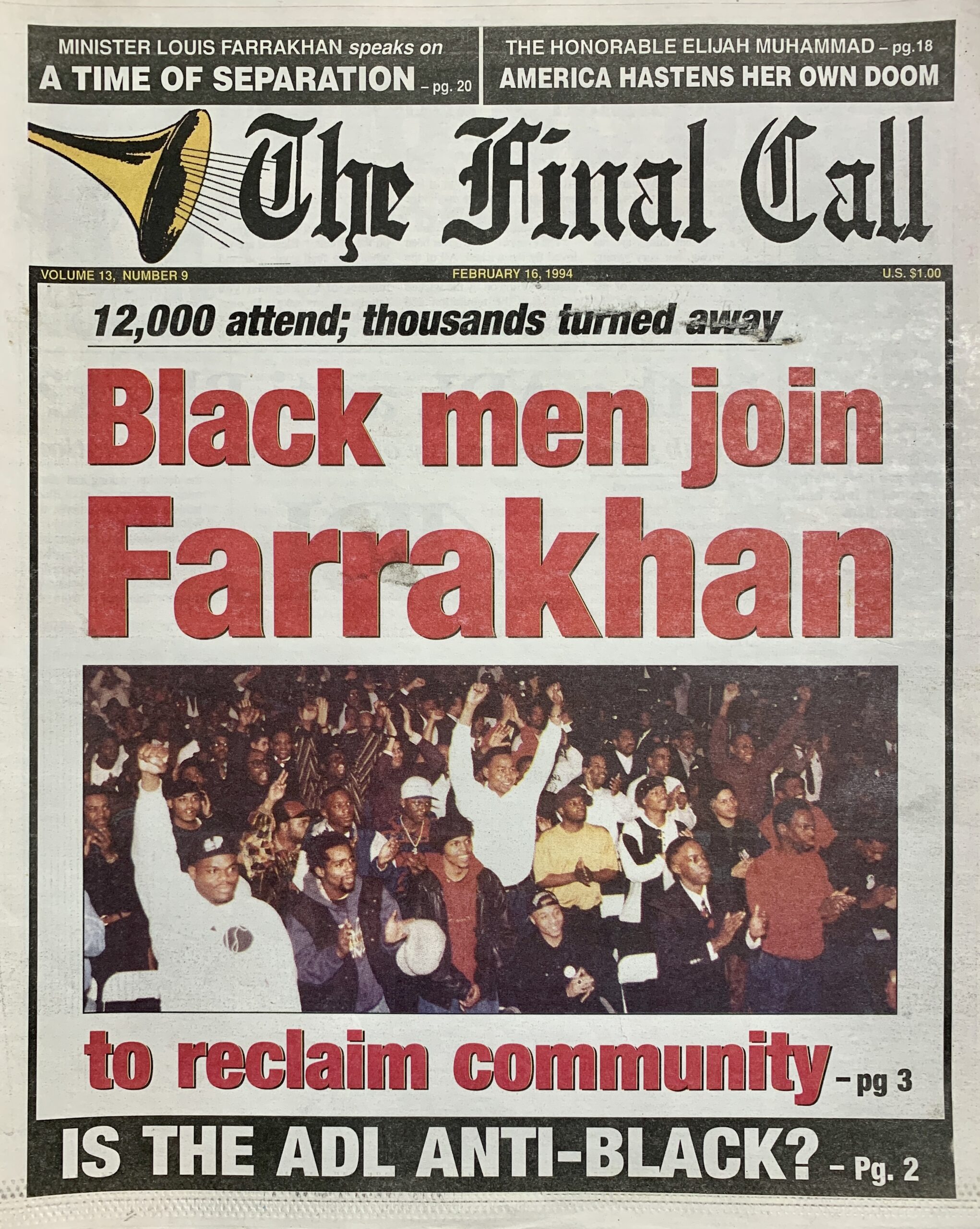

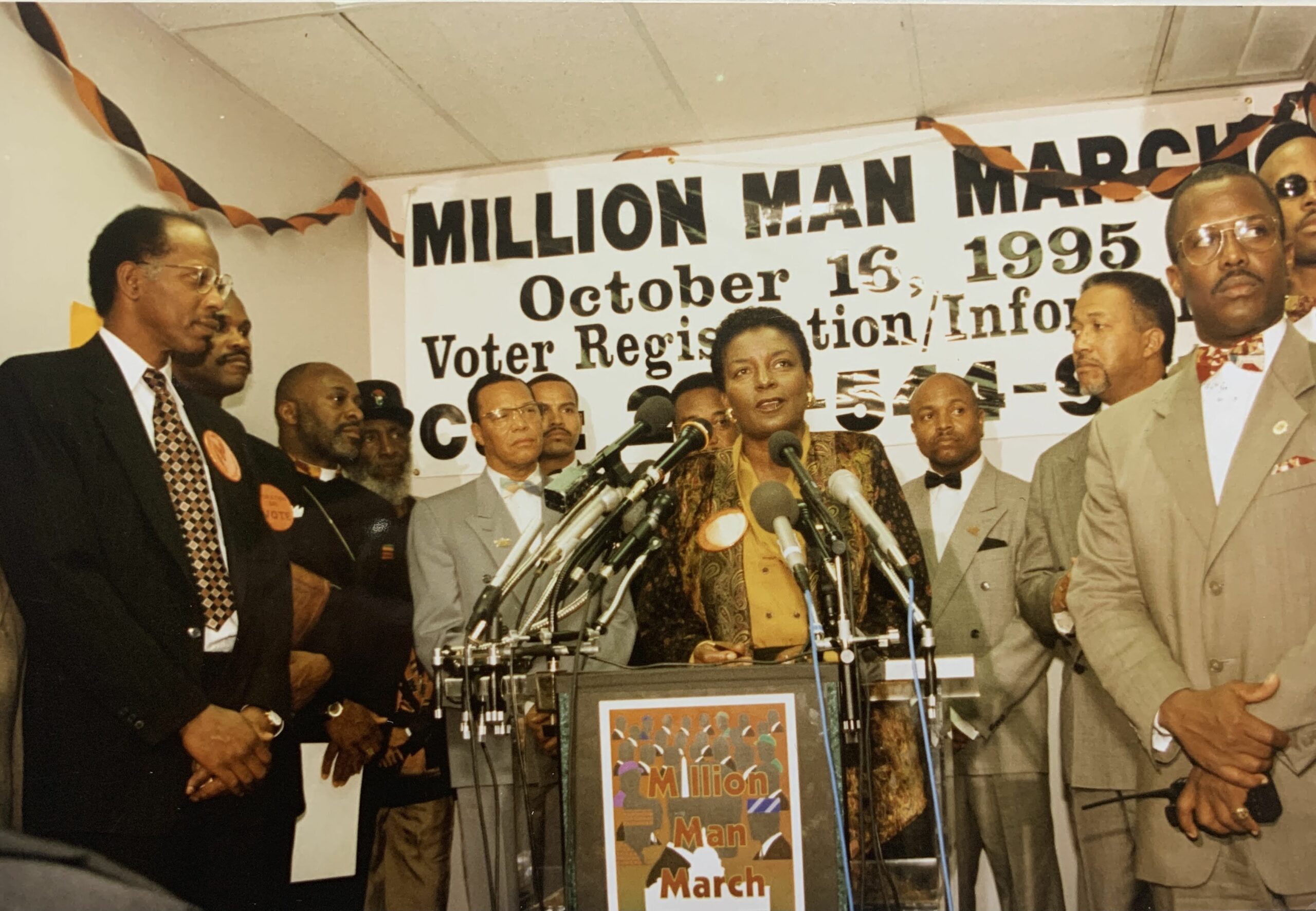
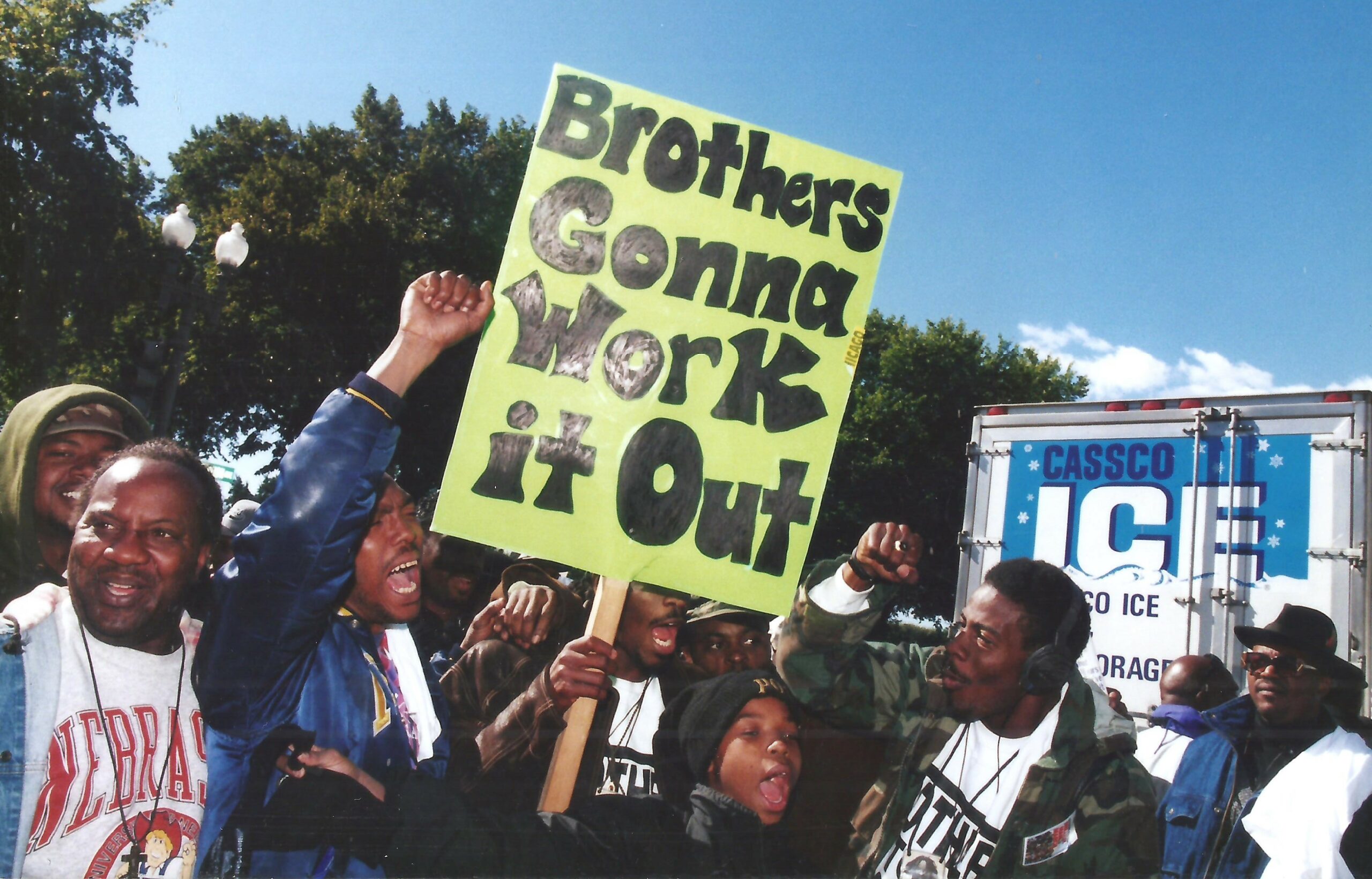
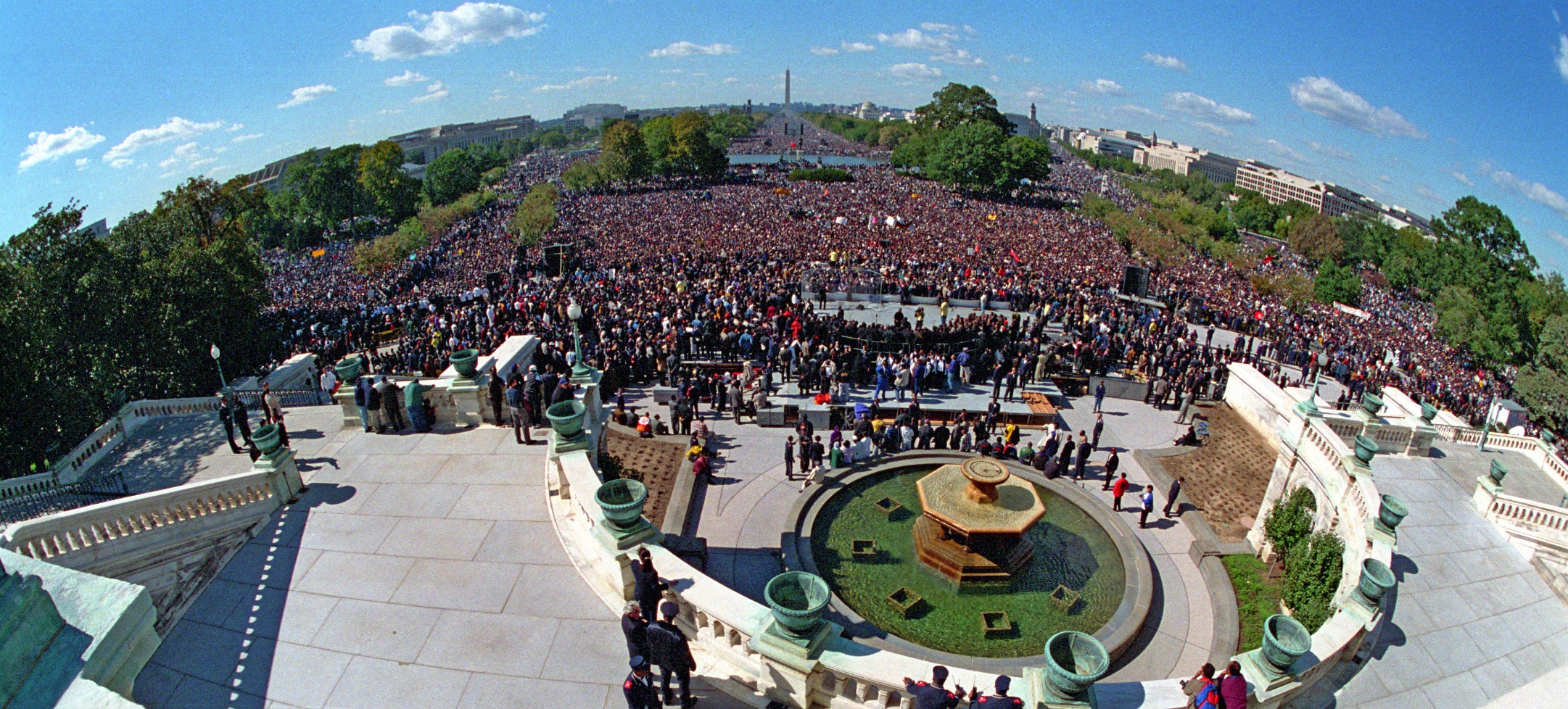
No comments:
Post a Comment